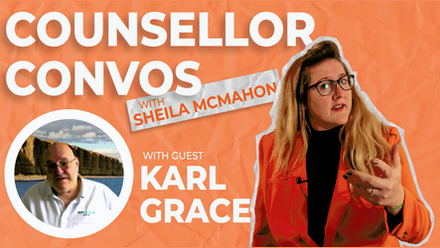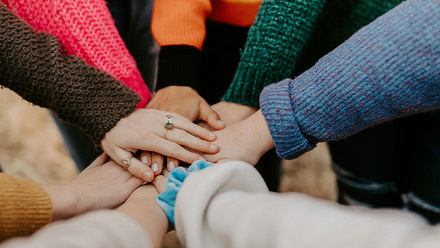Keeping your mind on the job
When you hear the term health and safety, what comes to mind? Hi-vis, hard hats and steel toe-capped boots? Yes, they are all good tools to keep us safe in the environment which we work. As an industry, we have come a long way. We promote a safety culture on site; we identify risks and mitigate against them. We have trained first aid personnel at hand should the unfortunate happen. All the above protect the individual from hazards within the environment which they work.
Is this enough? Keeping alert and keeping your mind on the job is also key to staying safe.
Keeping your mind on the job is an interesting phrase. For some, this can be challenging. For some, the mind can be a troubled place and old taboos around mental health can make discussing the subject uncomfortable. I am willing to bet that most of us have, at some time, encountered a colleague who has been troubled. Sometimes the troubles can be concealed under a veneer of banter or a cloak of silence.
The HSE recorded 39 fatalities on building sites in 2020/21 with 61,000 non-fatal injuries reported each year averaged over a three-year period 2018/19 - 2020/21. However, stress, anxiety and depression accounts for 27% of work-related ill health cases.
The number of deaths or injuries as a result of a troubled mind being elsewhere and not on the job is impossible to tell. Certainly, one's state of mental health has an influence on attention and focus and it is probably fair to say that a proportion of incidents are as a result of a troubled mind being distracted from the task in hand.
It has been encouraging to see how campaigns within our industry have focused through the lenses in Mental Health. Organisations like Mates in Mind which 'aims to provide clear information to employers on available support and guidance on mental health, mental illness and mental wellbeing'.
The Architects Benevolent Society (ABS) also 'offer practical support to people experiencing anxiety, stress or anxiety based depression through [their] partnership with Anxiety UK'. These industry-specific organisations provide excellent support both to someone who is suffering from anxiety, depression and stress and those who spot the signs in a colleague.
The key is taking that first step. This is where, as an industry, we need to build courage within the culture to act in a supportive way when a mental health issue becomes apparent. It is easy to find that courage to shout out when someone is not wearing a hard hat, but perhaps not so easy to identify the risks or find the courage to reach out, when a troubled mind is not focused on the job. Courage is a more accessible commodity when one knows how to offer guidance and point the way to professional support. That first conversation where the threshold is crossed into the space of sincere discussion about how one is really feeling is far less daunting when the landscape of professional support is on the horizon. Beyond that horizon can be tangible support to find a road to recovery.
I have experienced a situation where a site manager on one of our sites was in a place of darkness in his life. On the surface, this intelligent, witty and charismatic leader was held in a position of great respect within the team. Over a number of months, hints that life at home was not going well surfaced from time to time, often laughed off with some flippant remark. After one particular meeting, our conversation took on a different tone. It was clear that the spark of wit and charisma was being extinguished under a flood of dark emotions. We had a long conversation; well, I say conversation but more importantly, I listened and gave the time to do so. Fears and anxieties were communicated articulately, and he was not afraid to share.
There were tears, fears and moments of panic... and that was just me on hearing the story. What gave me the courage to offer support was knowing that I could guide the way to help. After our conversation, I called Mates in Mind to share what I had learned and to find out and understand what help could be offered. The range of support from legal, financial and emotional matters was superb. Equipped with more knowledge, I had another conversation. I encouraged contact with Mates in Mind for support and guidance. Without a doubt, the decision to make that call was instrumental in changing the course of the situation and increasing the range of possible outcomes.
But not all are as articulate and willing to share. Signs can be subtle and finding the courage to cross that threshold into an honest and meaningful conversation can be more than challenging.
Training is available via Mates in Mind who offer a course in Mental Health First Aid. This is a two-day course that teaches people to spot the symptoms of common mental health issues and recognise the early signs that someone may need support.
Many of the large construction companies are supporting the Mates in Mind initiative. The opportunity to get training in mental health first aid is a great step forward. Raising awareness of the support available within the industry is the mission to give us all the courage to reach out a hand of support when needed.
This article originally appeared in AT Journal issue 128
HSE statistics updated from the original article to include latest data






